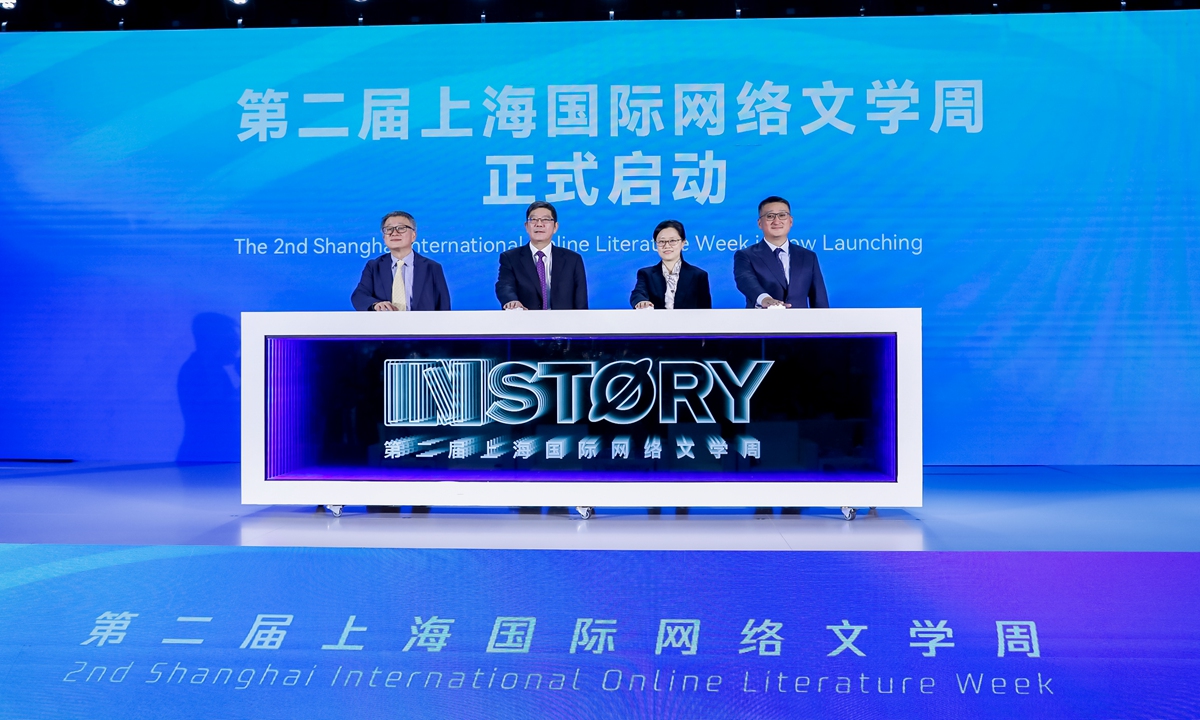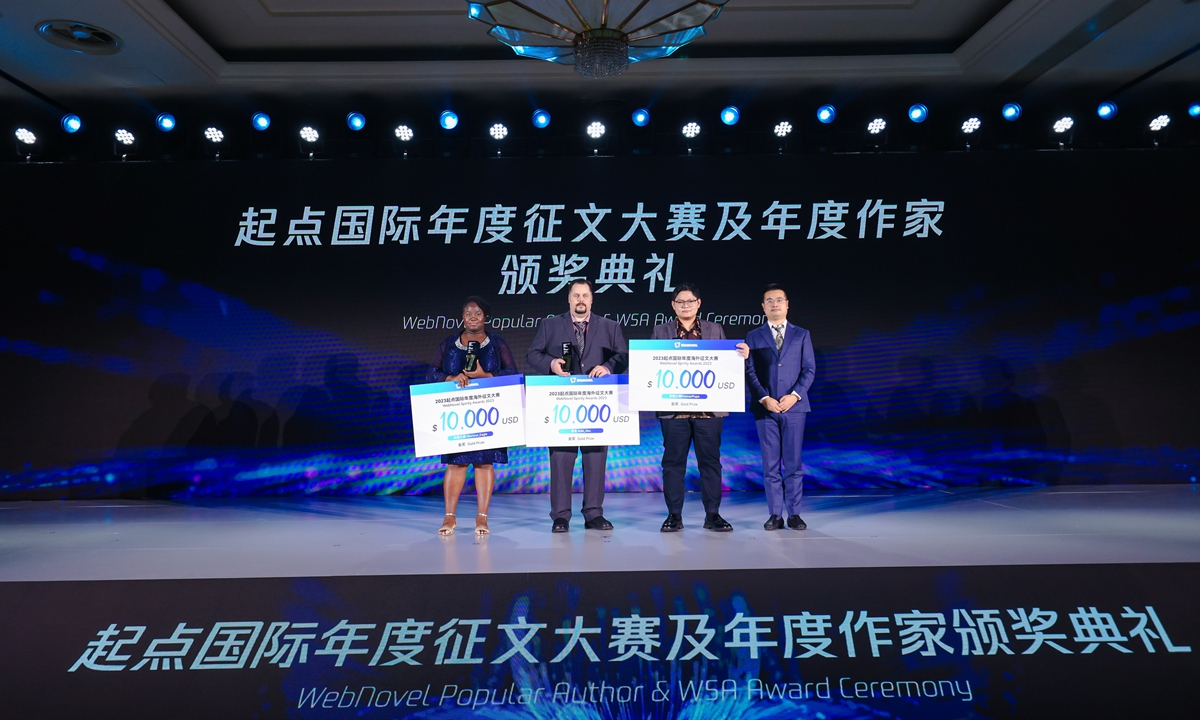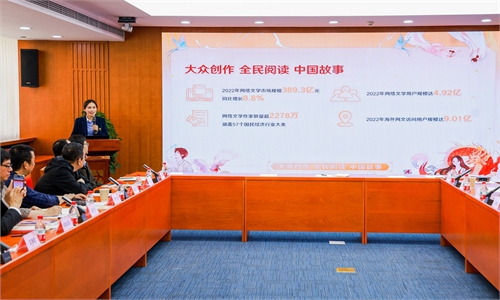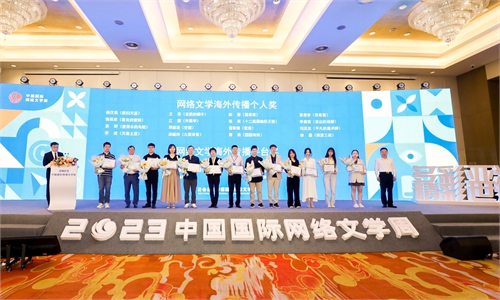ARTS / CULTURE & LEISURE
Global Gen Z share joy of online reading: new literature report
AI helps Chinese web novels sail overseas

Photo: Courtesy of China Literature
The fast development of AI-generated content (AIGC), especially AI translation, is accelerating the speed at which China's online novels are being introduced to the world, while global online writers tend to flock to a common platform to expand the world's online novel market, according to the 2023 China Online Literature Exporting Overseas Trend Report released during the 2nd Shanghai International Online Literature Week on Tuesday."Online literature not only brings Chinese culture and works to the world, but also witnesses the global development of this Chinese model," Hou Xiaonan, president of China Literature, told the Global Times on Tuesday after the report was released by the China Audio-video and Digital Publishing Association in Shanghai.
After going through publishing authorization, overseas translation and exporting models overseas, China's online literature has reached "a new stage of global IP co-creation as writers from different countries and regions work together to cultivate and develop online literature IP," which has led to a new wave of globalization in online literature, he added.
As of October 2023, WebNovel, an overseas portal owned by China Literature, had launched about 3,600 translated works of Chinese online literature and 610,000 overseas original works, said the report. The platform has been visited by more than 220 million users, who spend more than 1.5 hours daily on reading. More than 150,000 comments are usually made in a single day, including exchanges about works and discussions about the cities, food and culture from various countries.

Photo: Courtesy of China Literature
With the help of AI, the translation efficiency of online novels has increased by nearly 100 times, and the cost has been reduced by more than 90 percent. Many AI-translated works such as Behemoth Rising: Evolution in the Age of Legends translated from Chinese to English, and The Duke's Masked Wife from English into Spanish have become best-selling works on WebNovel.Due to the advantages of AI translation, the platform WebNovel will launch a multilingual development plan and introduce AI translation for English, Spanish, French, Japanese and other languages, to help good Chinese and foreign stories to reach a wider international audience, said Yang Chen, editor-in-chief of China Literature.
What is more, nearly 80 percent of WebNovel users are Generation Z, as online literature has increasingly become a global popular culture that penetrates deeply among young people around the globe.
For young readers living in Thailand, wuxia (martial arts), fantasy and romance are the three main segments that they love the most, said Polapat Udomphol from Ookbee, which has created one of Thailand's largest digital content ecosystems with more than 11 million monthly active users and 3 billion monthly page views.
God power, ironic protagonists, systems or game settings and "period or fantasy" are some key elements that enjoy the most popularity and help stories become well received among readers.
Ghosts, magic, suspense, romance and social issues are the leading IP adaptation trends in the Southeastern Asian country.
Chinese online literature has been exported overseas for more than 20 years. It has shared with the world not only excellent cultural works, but also a set of creative mechanisms and industrial models based on the digital age. As such, global industrial integration has become a significant trend in the development of online literature.
Sensui Takashi, chief global officer of Japan's Kadokawa Group, said that online literature from China and Japan can use their respective advantages to promote diverse adaptations around the world. He said that this will help further promote the development of the Chinese and Japanese content industries.




